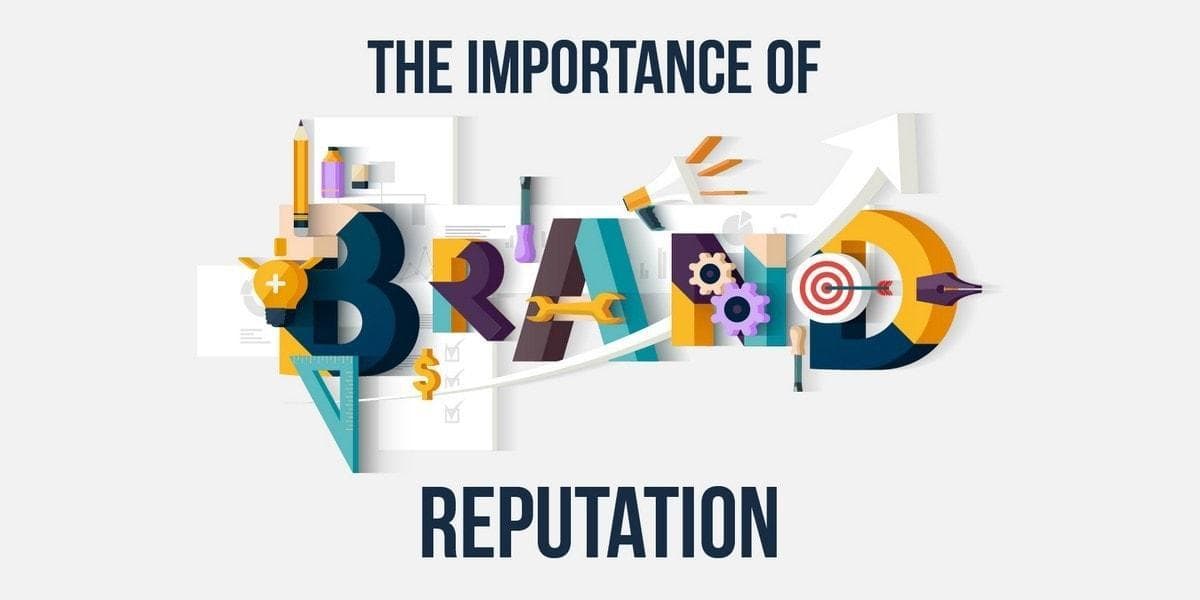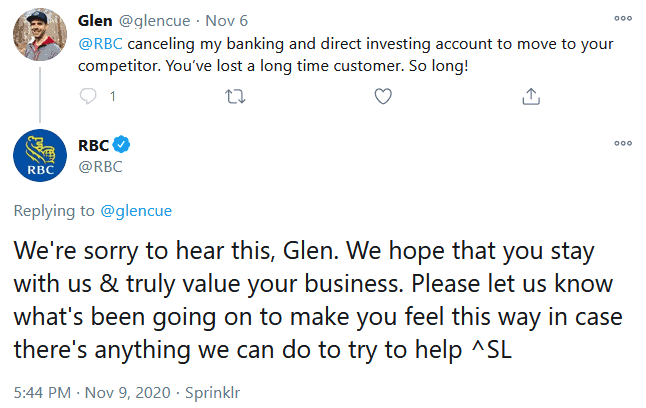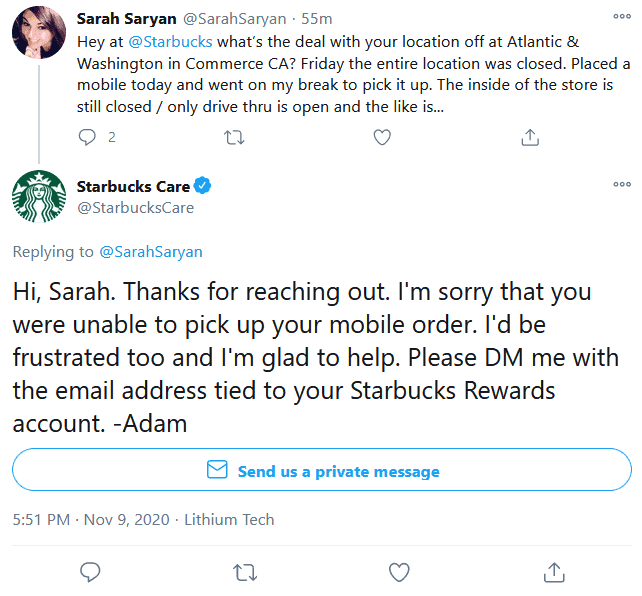We live in times where social media plays a crucial role in determining a brand’s image. Needless to say, there would be positive and negative comments on social media for any brand.
While positive comments are always welcome, negative comments damage the brand’s reputation. But what’s the best way to handle negative comments on social media?
Negative comments and feedback are inevitable in the online world. You can’t disable them or refute them entirely. The only option is to use the right techniques to deal with them.
In this write-up, we will explore the importance of maintaining a positive brand reputation, examine the effects of negative comments on social media, and delve into various strategies brands employ to handle such situations effectively.
Importance of Maintaining a Positive Brand Reputation
Building trust and credibility
Trust and credibility are fundamental pillars of a successful brand in today’s competitive marketplace. A positive brand reputation helps businesses build trust with their target audience and establish credibility within their industry.
Customers who perceive a brand as trustworthy are likelier to engage with it, make repeat purchases, and recommend it to others. You can leverage your social media brand image for your e-commerce business.
Establishing a strong brand image
Maintaining a positive brand reputation involves consistently delivering on promises and meeting customer expectations.
Brands consistently providing high-quality products or services, prioritizing customer satisfaction, and demonstrating ethical business practices tend to establish a strong brand image. This image acts as a foundation for customer trust and loyalty.
Enhancing customer loyalty
A positive brand reputation fosters a sense of loyalty among customers. When customers have positive experiences with a brand, they develop a sense of attachment and loyalty, making them more likely to choose that brand over competitors.
Loyal customers continue to support the brand and become brand advocates, sharing their positive experiences with others and contributing to its reputation.
Attracting new customers through positive referrals
Word-of-mouth marketing plays a significant role in attracting new customers. A positive brand reputation increases the likelihood of customers referring the brand to their friends, family, and social networks.
Potential customers often seek recommendations and customer reviews before making purchasing decisions, and positive referrals can significantly impact their perception of a brand. Thus, maintaining a positive reputation can lead to a steady influx of new customers.
Impact on business success
When you promote your business on social media, maintaining a strong brand image is crucial.
A strong brand reputation directly influences a business’s success and long-term sustainability. A positive reputation can yield several benefits that contribute to the overall growth and profitability of the brand.
Increased customer engagement
Customers are more likely to engage with a brand with a positive reputation. They actively participate in discussions, provide feedback, and share their experiences on social media platforms.
This increased engagement creates a valuable opportunity for brands to build relationships, gather insights, and better understand their customers’ needs and preferences.
Positive influence on purchasing decisions
When faced with multiple choices, customers often rely on a brand’s reputation to guide purchasing decisions. A positive brand reputation acts as a signal of quality, reliability, and value, influencing customers to choose one brand over another.
Customers are more likely to invest in products or services from brands they perceive as trustworthy, leading to increased sales and revenue.
Long-term Brand Sustainability
A positive brand reputation enhances the overall sustainability of a business. It provides a competitive advantage by differentiating the brand from its competitors.
Brands with a strong reputation can weather crises or negative incidents more effectively because they have established a reservoir of goodwill among their customers.
This resilience allows them to recover from setbacks and maintain their position in the market over the long term.
Effects of Negative Comments on Social Media
No brand has ever been spared of negative social media comments. Here is what the effect of that is:
Damage to brand image and reputation
Negative comments on social media platforms can harm a brand’s image and reputation, leading to various consequences that can impact its overall success.
Rapid Spread of Negative Sentiments
Information spreads quickly in the digital era, and negative comments on social media can gain traction rapidly.
Social media platforms provide an environment where users can easily share their opinions and experiences, amplifying the reach of negative sentiments.
A single negative comment can reach a wide audience within minutes, potentially damaging the brand’s image.
Potential loss of customer trust and loyalty
Negative comments and feedback on social media can erode customer trust and loyalty.
Customers often turn to social media to voice their concerns or dissatisfaction. When these negative comments go unaddressed or are handled poorly, it can lead to a loss of trust.
Customers may perceive the brand as unresponsive or uncaring, causing them to reconsider their loyalty and seek alternatives.
Negative impact on brand perception and sales
Negative comments on social media can significantly impact how the public perceives the brand. If negative comments are prevalent and left unaddressed, potential customers may develop a negative perception of the brand even before interacting with it.
This negative perception can deter potential customers from engaging with the brand, decreasing sales and declining market share.
B. Customer perception and influence
Negative comments on social media platforms can shape customer perception and influence purchasing decisions.
Power of social proof and user-generated content
Social media has empowered customers to become active participants in shaping brand narratives. User-generated content significantly influences potential customers, including reviews, comments, and testimonials from existing users.
Negative comments are social proof of poor experiences, making potential customers wary of engaging with the brand.
The collective sentiment of user-generated content can sway customer perceptions, making it crucial for brands to address negative comments promptly.
The viral nature of negative comments
Negative comments have the potential to go viral on social media platforms, significantly amplifying their impact.
When a negative comment gains traction and is shared or retweeted by other users, it can quickly reach a vast audience, creating a snowball effect.
The viral nature of negative comments poses a greater challenge for brands as they try to contain the damage and regain control of the narrative.
The Psychological Impact on Potential Customers
Negative comments on social media can have a psychological impact on potential customers. Human beings are wired to pay more attention to negative information, and negative comments can leave a lasting impression.
Potential customers may develop hesitations or doubts about a brand based on negative comments, leading them to choose competitors with a more positive reputation.
The psychological impact can directly affect the brand’s ability to attract new customers and expand its customer base.
5 Ways to Deal with Negative Comments on Social Media
Several tried-and-tested ways can help you deal with negative comments on social media effectively:
1. Prompt and professional responses
Dealing with negative comments on social media requires prompt and professional responses to address customer concerns effectively. Here is how to deal with negative comments professionally:
- Timely acknowledgment of the comment: Respond to negative comments promptly, showing customers that their concerns are being heard and taken seriously.
- Adopting a polite and empathetic tone: Respond with empathy and understanding, demonstrating that you value the customer’s feedback and are committed to resolving the issue.
- Providing accurate and helpful information: Offer factual and helpful information to address the customer’s concerns or provide solutions. This shows transparency and a genuine commitment to resolving the issue.
2. Transferring the conversation to private channels
Transferring the conversation to private channels allows personalized support and demonstrates a commitment to resolving the issue.
- Encouraging users to direct message or email: Promptly direct customers to private channels, such as direct messaging or email, to discuss their concerns in more detail and provide personalized assistance.
- Ensuring privacy and personalized support: Assure customers that their concerns will be addressed privately and provide individualized support to understand their needs and find suitable solutions.
- Demonstrating commitment to resolving the issue: By transferring the conversation to private channels, brands showcase their dedication to resolving the problem and building a positive customer experience.
3. Turning negativity into an opportunity
Proactively turning negativity into an opportunity allows brands to address concerns, improve their products or services, and showcase their commitment to customer satisfaction.
- Acknowledging feedback as an opportunity for improvement: View negative feedback as constructive criticism and an opportunity to identify areas for improvement within your brand.
- Proactively seeking solutions and addressing concerns: Take a proactive approach to resolve the issue, showing customers that their feedback is valued and that steps are being taken to rectify the situation.
- Publicly sharing positive outcomes and actions taken: After resolving the issue, publicly share the positive outcomes and actions. This demonstrates transparency, accountability, and a commitment to customer satisfaction.
4. Moderation and removal policies
Establishing clear moderation and removal policies helps maintain a respectful online community while balancing freedom of speech with brand reputation.
- Establishing clear guidelines for user behavior: Create community guidelines that outline acceptable behavior, ensuring users understand the boundaries of respectful engagement.
- Swiftly removing offensive or inappropriate comments: Use a social media monitoring tool to actively monitor and swiftly remove offensive or inappropriate comments that violate the established guidelines to maintain a positive online environment.
- Balancing freedom of speech with brand reputation: Strike a balance between allowing freedom of speech and protecting the brand’s reputation by addressing negative comments within the guidelines and fostering healthy discussions.
5. Influencer and brand advocacy
Leveraging influencers and brand advocates can help address negative comments and counteract negativity with positive experiences.
- Collaborating with influencers to address negative comments: Engage influencers to address negative comments, allowing them to provide their perspective or share positive experiences related to the brand, helping mitigate negative sentiments’ impact.
- Encouraging loyal customers to share positive experiences: Actively engage with loyal customers and encourage them to share their positive experiences on social media, showcasing genuine testimonials that counteract negativity.
- Leveraging social proof to counteract negativity: Utilize social proof, such as testimonials, reviews, and user-generated content, to demonstrate the positive experiences of customers, providing a balanced perspective to counteract negativity.
How Do Brands Handle Negative Comments On Social Media Examples
National Trust South East

A customer at National Trust South East in the UK expressed disappointment on Twitter about a lackluster £3.95 ($5.25) sandwich. The brand responded promptly and offered to make it right by offering the customer a free treat.
While giving out freebies is not always the appropriate response to customer complaints, it helps resolve the issue and retain the customer’s business.
Considering the cost of offering a freebie versus the potential loss of a customer’s business and the risk of negative reviews is important.
Royal Bank of Canada
When a customer publicly announced their intention to switch to a competitor, the Royal Bank of Canada (RBC) demonstrated compassion, empathy, and a willingness to assist.
Despite the customer’s dissatisfaction, RBC responded sincerely and professionally.
While it’s unclear whether the customer was ultimately retained, the brand’s genuine and sympathetic response showcased its commitment to customer satisfaction.
When faced with negative statements or potential customer attrition, responding with understanding and compassion can help improve the customer’s perception.
Starbucks
Starbucks, known for its active engagement on social media, responded to a tweet from a dissatisfied customer. Their response was the display of empathy with the phrase, “I’d be frustrated too.”
The Starbucks customer service representative put themselves in the customer’s shoes, mirroring the frustration. This empathetic approach always effectively shows customers that their feelings are understood.
Additionally, Starbucks responded to the customer’s tweet within five minutes, demonstrating impressive responsiveness.
While replicating Starbucks’ social media team may not be feasible, aiming to respond to social media mentions, both positive and negative, as quickly as possible is essential.
Final Thoughts on Handling Negative Comments on Social Media
Brands have realized the importance of addressing negative comments on social media to protect their reputation. Proactive monitoring enables them to respond promptly and prevent escalation.
Transparency and authenticity are crucial as brands engage in open conversations, acknowledge concerns, and provide meaningful explanations or solutions.
Social media is seen as an opportunity to turn dissatisfied customers into loyal advocates by delivering exceptional customer service and personalized solutions.
Brands also value negative feedback as a chance to learn and improve, incorporating customer insights into their strategies.
By adopting these approaches, brands can mitigate reputational damage, build stronger customer relationships, and enhance their overall image in the digital landscape.
Effective handling of negative comments on social media has become an integral part of a brand’s reputation management strategy.






